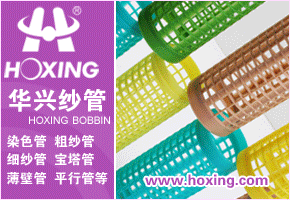Planet Textile Shanghai breaks new ground
It was widely acknowledged that the first Planet Textiles in China was a ground-breaking event on sustainability in the textiles sector in China, according to delegates who attended the event where traceability, transparency and toxicology were the main issues of the day.
With around 200 people packed into the Renaissance Hotel in Pudong, Shanghai, and with pressure group Greenpeace in attendance, Phil Patterson, chair of the not-for-profit environmental textile group RITE, pulled no punches when he noted “the Greenpeace Detox report should be broadly welcomed by the industry as it has rightly highlighted textile dyeing and finishing as a major environmental problem. However, it has missed an opportunity to flag up more pressing environmental problems and its call for zero toxic discharge is unrealistic.”
The Detox report from Greenpeace highlights the presence of trace amounts of a persistent organic pollutant chemicals called nono phenols (NPE) and other harmful chemicals in samples of wastewater discharges taken at two textile processing facilities, Youngor Textile City Complex and the Well Dyeing Factory Limited in the Yangtze and Pearl river deltas. These factories are being used to make clothing and textiles for companies such as Puma, Nike, adidas, H&M, Li Ning and others.
“Greenpeace is selecting a country that is making significant progress on environmental issues,” noted Patterson, “There are other regions of the world (most notably on the Indian sub-continent) where the problems of textile effluent are much more urgent where rivers are being turned into seas thanks to huge, unregulated discharges of salt from cotton dyehouses.”
He also claimed that ‘zero discharge’ of all chemicals in the textile sector is “not realistic”. The pressure group is pressing leading brands to commit to zero discharge of toxic chemicals from supply chains by 2020 - something which Puma, adidas, Nike and H&M all appear to have signed up to. Ilze Smit, from Greenpeace Netherlands defended the Detox position saying that “zero discharge was achievable” and said the textile sector should adopt the “precautionary principle and a preventative approach to chemicals management. “If we do not use harmful chemicals in the first place at the start of textile production, then there is no way they can be present in waste water discharge,” she said.
As noted by Kurt Schlaepfer from bluesign technologies at Planet Textiles, this common sense principle is how the widely regarded bluesign standard operates. “Using a careful input management system is surely the way forward for the sector,” he added.
China standards
Meanwhile, Mr Sun Ruizhe, Vice president of the China National Textile & Apparel Council (CNTAC) highlighted how China’s textile sector will be driven in future by internal demand rather than exports, but said this would be accompanied by a much more considered approach to environmental and ethical issues.
“While China’s textile sector will experience a slow down in its export growth (due in part to a slowing demand in Europe), the growing domestic market will become the primary focus of attention for the industry,” he said. “However, the next phase of growth will have to adhere to strict new environmental legislation as well as ethical issues. Our CSC900T ethical standard will assume growing importance. There will be a migration from quantity to quality in our industry using our own standards which will also feature environmental hang-tags at point of sale for consumers.”
In a very high profile speaker line-up at the event, John Cheh, CEO of integrated cotton textile mill Esquel Group noted that sustainability for his organisation also equals profitability. “What’s good for the environment is also good for business,” he said as he described how in the last few years the company has reduced energy consumption by 40% and water consumption by 50%. “An annual saving equivalent to 6.8 million tonnes,” he said.
We’ll produce an in-depth report on the Planet Textiles conference in the next issue of Ecotextile News magazine. Key speakers also included Mr Kenneth Lo, Chairman of the giant Crystal Group, Mr David Chu of TAL Apparel, Christine Timkiw, Director of raw materials at Wal-Mart, Bril Lacno from Levi Strauss among others.







